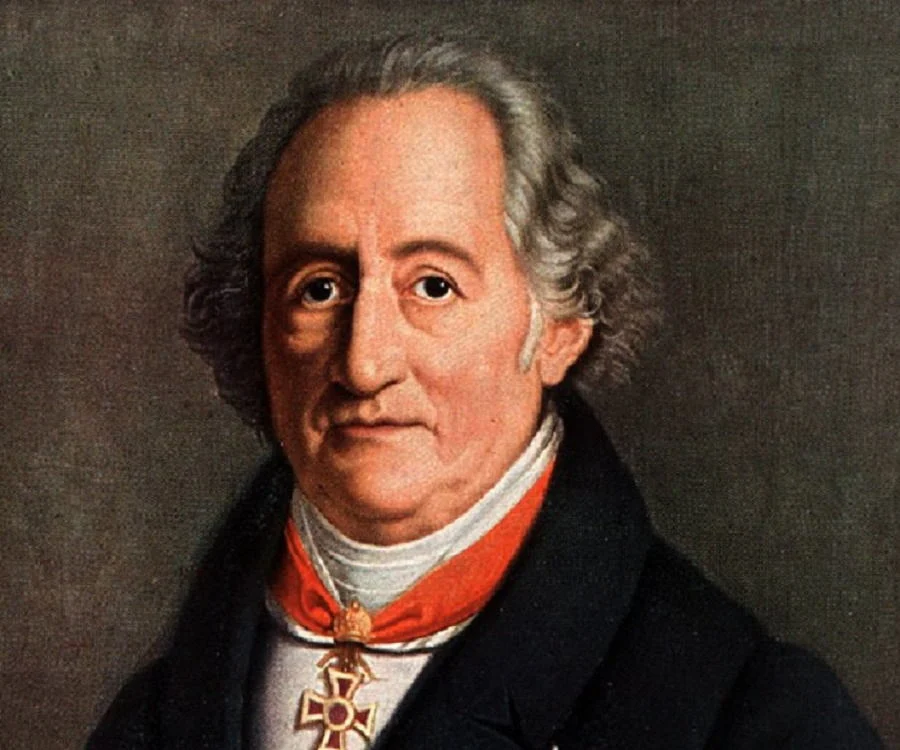Johann Wolfgang Von Goethe, a towering figure in German literature and a pioneer in the Romantic movement, left an indelible mark on the world with his profound insights into human nature, artistic creativity, and philosophical inquiries. Born on August 28, 1749, in Frankfurt, Germany, Goethe’s contributions spanned across various disciplines, including poetry, drama, novels, and scientific studies. His extensive body of work continues to inspire and influence generations of writers, thinkers, and artists worldwide.
Early Life and Education
Goethe’s early life was marked by a deep passion for learning and artistic expression. He received a comprehensive education in languages, literature, philosophy, and natural sciences, laying a strong foundation for his future endeavors. His voracious appetite for knowledge led him to study law at the University of Leipzig and later at the University of Strasbourg, where he immersed himself in the intellectual and cultural milieu of the time.
Literary Achievements
Goethe’s literary career is characterized by a remarkable versatility and a keen sense of observation. His works reflect a deep understanding of human emotions, societal norms, and the complexities of the human experience. Some of his most famous works include:
“Faust” – Regarded as one of the greatest works in German literature, “Faust” is a tragic play that delves into themes of ambition, redemption, and the pursuit of knowledge. The protagonist, Faust, makes a pact with the devil, Mephistopheles, in exchange for worldly pleasures and experiences, leading to a dramatic exploration of human desires and moral dilemmas.
“The Sorrows of Young Werther” – This epistolary novel catapulted Goethe to literary fame and became a sensation across Europe. It follows the protagonist, Werther, as he grapples with unrequited love, existential angst, and ultimately, tragic consequences. The novel’s emotional depth and exploration of Romantic ideals captivated readers and sparked intense discussions about love, passion, and individual freedom.
“Wilhelm Meister’s Apprenticeship” – In this Bildungsroman, Goethe chronicles the journey of Wilhelm Meister as he navigates the worlds of theater, society, and personal growth. The novel explores themes of self-discovery, artistic expression, and the pursuit of one’s true calling, offering profound insights into the nature of identity and purpose.
“Faust Part II” – Building upon the themes introduced in the first part of “Faust,” Goethe’s second installment delves deeper into Faust’s quest for enlightenment and salvation. The play encompasses a wide range of philosophical and mythical elements, showcasing Goethe’s mastery of symbolism, allegory, and dramatic storytelling.
“Elective Affinities” – This novel explores the complexities of human relationships and the forces that shape them. Through the intertwined lives of the main characters, Goethe examines the dynamics of love, desire, and societal expectations, raising profound questions about personal autonomy and moral responsibility.
Philosophical Contributions
Beyond his literary achievements, Goethe made significant contributions to philosophy, particularly in the realms of aesthetics, epistemology, and metaphysics. His concept of the “Weltanschauung,” or worldview, emphasized the interconnectedness of nature, art, and human consciousness. He advocated for a holistic approach to knowledge that integrated scientific inquiry with artistic expression, paving the way for interdisciplinary studies in the future.
Goethe’s fascination with nature also informed his scientific endeavors, including his studies in botany, optics, and anatomy. His keen observations and empirical approach laid the groundwork for his theory of metamorphosis in plants, challenging prevailing notions and contributing to the development of modern biology.
Legacy and Influence
Goethe’s legacy endures through the countless artists, writers, and thinkers who have been inspired by his work. His emphasis on individualism, emotional authenticity, and the pursuit of truth resonates across cultures and generations, making him a timeless figure in the annals of world literature and philosophy.
His influence extends beyond the realm of art and academia, shaping societal debates on ethics, education, and humanistic values. Through his writings and actions, Goethe championed the idea of the artist as a visionary, a seeker of knowledge, and a catalyst for social change.
In conclusion, Johann Wolfgang Von Goethe’s enduring legacy lies in his profound insights into the human condition, his artistic achievements, and his philosophical inquiries. His works continue to inspire and challenge readers, inviting them to explore the depths of human experience and the mysteries of existence. As we reflect on his contributions, we are reminded of the enduring power of literature and art to illuminate our world and enrich our lives.

